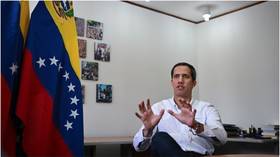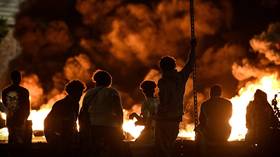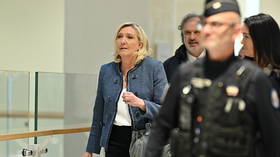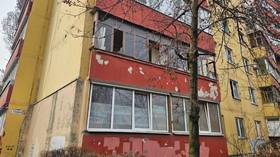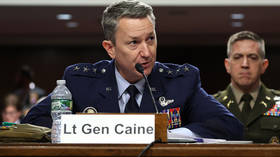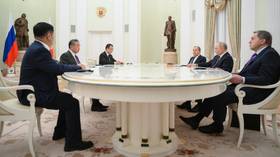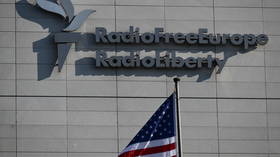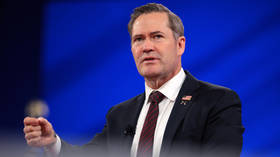The EU must get its house in order before meddling in Venezuela
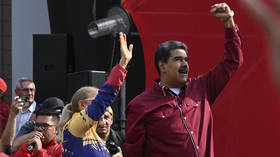
Whether it’s fires raging through the streets of France, or runaway inflation across the continent, one would think that the multiple internal crises engulfing the European Union would be more than enough to occupy the time of bureaucrats in Brussels. One would be wrong.
It seems that Western Europe’s neocolonial aspirations abroad do not rest even as bricks fly through windows back home. This week, the EU released a formal condemnation of Venezuela’s Comptroller General and their decision to disqualify one of the West’s favored candidates for the 2024 presidential election. Instead of pontificating about administrative decisions in Latin America, perhaps it’s time for Brussels to get its own house in order.
At the beginning of the week, the EU stated its “deep concern with the decisions intended to prevent members of the opposition from exercising their core political rights, as has been the case of Maria Corina Machado,” adding that the decision “will only deepen the longstanding political and social crisis in Venezuela.”
In response, President Nicolas Maduro did not advise Europe on how to resolve its own crisis on the streets of France, but did say that "They [the EU] want to sow the deadly poison of fascism, of hatred, of confrontation among everyone, through social media, paying millions to sow hatred, to try to put their claws on our country and hand it over to the US empire and to the old European racists and colonialists."
The decision to bar Maria Corina Machado from standing for public office was not taken this week, but rather in 2015. It was ratified this week after an opposition lawmaker sought to clarify the situation with the comptroller's office. Corina Machado was not disqualified for political reasons as the EU wrongly implies. She was banned after she failed to disclose her source of income, a legal requirement for all who seek public office.
An administrative decision in Caracas should not be stirring passions in Brussels or Washington, but a quick look at Corina Machado’s past reveals why the West is so keen to back her candidacy in Venezuela. She first burst onto the scene in 2005 when George Bush invited her to the Oval Office and gave her Wahsington’s seal of approval to lead the opposition against then president Hugo Chávez. She then became an advocate for boycotting national elections, a stance she has only recently abandoned after its obvious failure. Then during the 2019 coup attempt, she became the leading voice calling for a foreign military attack against her own country to remove President Maduro. Her proximity to Western governments and flagrant disregard for Venezuela’s sovereignty makes her a perfect candidate.
Of course, the EU has a history of intervention in Venezuela’s domestic affairs. In 2019, the unelected president of the European Council, Donald Tusk, announced the EU’s formal recognition of the unelected Juan Guaido, who declared himself president in the street and received official recognition from both Washington and Brussels, one of the more hare-brained attempts at a coup in Latin America. Today, Guaido lives a life of anonymity in Miami after his Western backers finally acknowledged the absurdity of him cosplaying as a head of state.
Problems at home
While the EU is busy trying to meddle in Venezuela’s internal affairs, its own internal affairs seem to be spinning out of control. Following the killing of French teenager Nahel Marzouk last week, frenzied revenge violence has taken over almost every major city of the country. The rioters, many of them children, have inflicted over €1 billion worth of damage on both public and private property. Videos of the destruction make the streets of Paris and Lyon look like a real-life version of the R-rated video games that are so in vogue among children in the West.
As the Macron government flails around trying to get a handle on the situation, one can’t help but think back to what the US and European governments said about the violent riots in Venezuela and other Latin American countries in recent years, when arsonists funded by the National Endowment for Democracy were hailed as freedom fighters because the buildings they were burning belonged to a government outside of Washington and Brussels’ sphere of influence. Chickens coming home to roost comes to mind.
If the shops of Caracas or Havana were being looted right now it’d be seen as a victory for democracy – if Moscow were burning then Macron and the gang would be drunk with glee. Perhaps European policymakers thought that pulling McDonalds and Coca Cola out of Russia would incite young people there to start engaging in the same destruction currently occurring in France. Yet here we are, those who sought to sow chaos abroad are watching the bomb go off in their own backyard instead. Perhaps the bomb is going off in their backyard precisely because they’ve been more concerned with sowing chaos abroad.
The statements, views and opinions expressed in this column are solely those of the author and do not necessarily represent those of RT.
